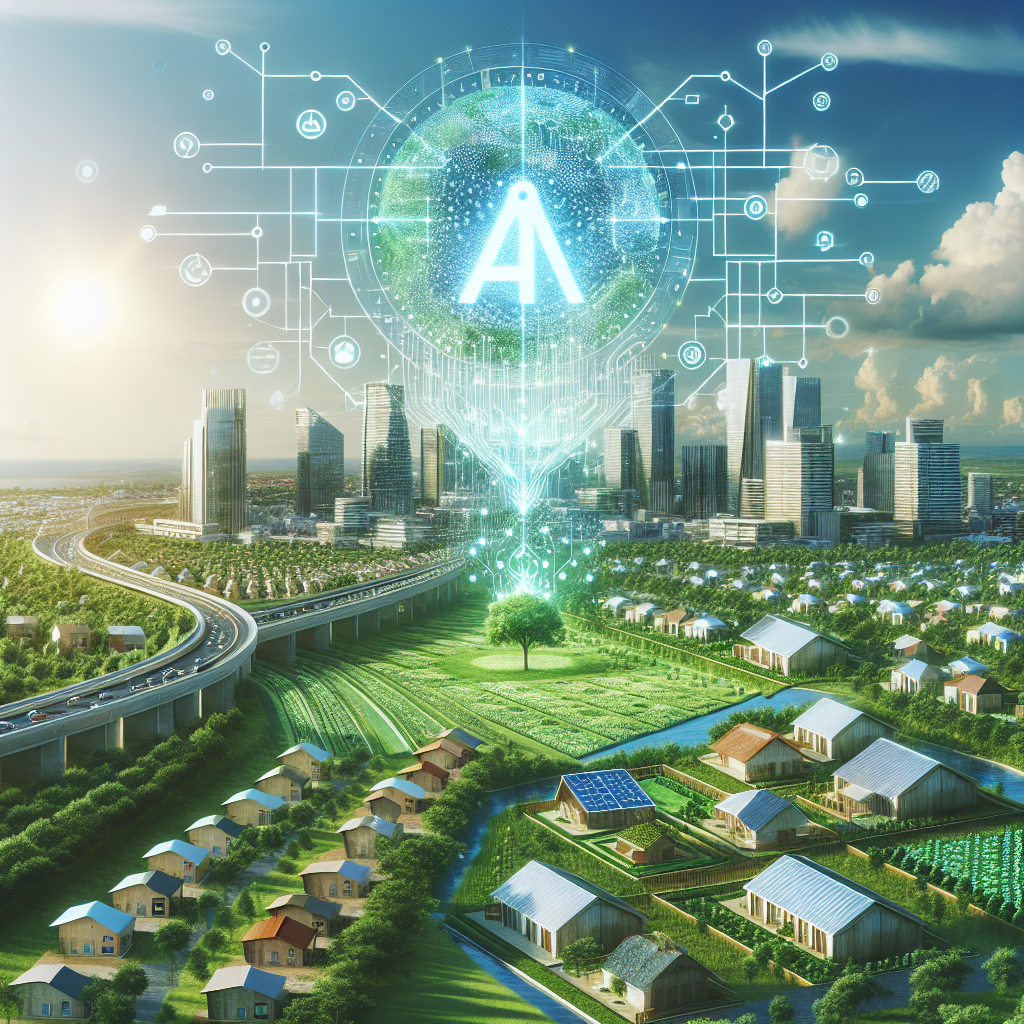The Role of AI in Sustainable Development
In recent years, artificial intelligence (AI) has emerged as a powerful tool for driving sustainable development across various sectors. From reducing carbon emissions to improving resource efficiency, AI has the potential to revolutionize the way we address environmental challenges and promote sustainable development.
AI technology can be applied in a wide range of areas to support sustainable development goals, including climate change mitigation, renewable energy production, ecosystem conservation, and smart cities planning. By harnessing the power of AI, organizations and governments can make informed decisions, optimize processes, and develop innovative solutions to address pressing environmental issues.
One of the key areas where AI is making a significant impact is in climate change mitigation. AI algorithms can analyze vast amounts of data to identify patterns and trends in climate change, helping scientists and policymakers better understand the causes and effects of global warming. This information can then be used to develop more effective strategies for reducing greenhouse gas emissions and adapting to changing climate conditions.
AI can also play a crucial role in improving energy efficiency and promoting the use of renewable energy sources. By optimizing energy consumption patterns, AI can help reduce waste and lower carbon emissions, leading to a more sustainable energy system. Additionally, AI algorithms can help forecast energy demand and optimize the integration of renewable energy sources into the grid, enabling a smoother transition to a low-carbon economy.
In the realm of ecosystem conservation, AI can be used to monitor and protect biodiversity hotspots, track wildlife populations, and detect illegal activities such as poaching and deforestation. By analyzing satellite imagery and sensor data, AI algorithms can provide real-time information on the health of ecosystems and help conservationists make more informed decisions about resource management and protection efforts.
Smart cities planning is another area where AI is making a significant impact on sustainable development. By analyzing data from sensors and IoT devices, AI can optimize urban infrastructure, reduce traffic congestion, and improve air quality. AI-powered solutions can also help cities better manage water resources, waste disposal, and public transportation systems, leading to more sustainable and livable urban environments.
In addition to these specific applications, AI technology is also driving innovation in areas such as circular economy, sustainable agriculture, and disaster resilience. By leveraging AI tools and techniques, businesses and organizations can improve resource efficiency, reduce waste, and enhance their overall environmental performance.
FAQs
Q: How can AI help in reducing carbon emissions?
A: AI can help reduce carbon emissions by optimizing energy consumption patterns, forecasting energy demand, and promoting the use of renewable energy sources. By analyzing data and identifying opportunities for efficiency improvements, AI algorithms can help organizations lower their carbon footprint and transition to a more sustainable energy system.
Q: How can AI support ecosystem conservation efforts?
A: AI can support ecosystem conservation efforts by monitoring biodiversity hotspots, tracking wildlife populations, and detecting illegal activities such as poaching and deforestation. By analyzing satellite imagery and sensor data, AI algorithms can provide real-time information on the health of ecosystems and help conservationists make more informed decisions about resource management and protection efforts.
Q: What role does AI play in smart cities planning?
A: AI plays a crucial role in smart cities planning by analyzing data from sensors and IoT devices, optimizing urban infrastructure, reducing traffic congestion, and improving air quality. AI-powered solutions can also help cities better manage water resources, waste disposal, and public transportation systems, leading to more sustainable and livable urban environments.
Q: How can AI support sustainable agriculture practices?
A: AI can support sustainable agriculture practices by analyzing soil data, weather patterns, and crop health metrics to optimize farming practices and reduce the use of pesticides and fertilizers. By providing farmers with real-time insights and recommendations, AI technology can help improve crop yields, reduce waste, and promote more sustainable agricultural practices.
Q: What are some challenges associated with the use of AI for sustainable development?
A: Some challenges associated with the use of AI for sustainable development include data privacy concerns, ethical implications, and potential biases in AI algorithms. Additionally, there is a need for more research and collaboration to ensure that AI technologies are used in a responsible and transparent manner to support sustainable development goals.
In conclusion, AI has the potential to play a transformative role in driving sustainable development across various sectors. By leveraging AI technology, organizations and governments can make more informed decisions, optimize processes, and develop innovative solutions to address pressing environmental challenges. With continued research and collaboration, AI can help accelerate progress towards a more sustainable and resilient future for all.

